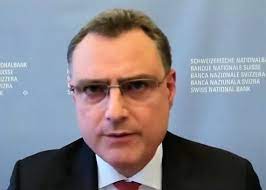The Swiss National Bank on Thursday raised its policy interest rate for the first time in 15 years in a surprise move, saying it is ready to hike further based on emerging inflationary trends in the global economic system.
With the latest monetary policy stance, the Swiss Bank has joined other central banks in tightening monetary policy to fight resurgent inflation.
Specifically, the apex bank increased its policy rate to -0.25% from the -0.75% level it has deployed since 2015, sending the safe-haven franc sharply higher.
A news report by Reuters indicated that nearly all the economists polled had expected the apex bank to keep rates steady.
It was the first increase by the SNB since September 2007, and followed a 0.75% rate hike by the US Federal Reserve yesterday.
Other central banks are also raising interest rates as they attempt to cool inflation driven higher by surging fuel and food prices that are straining budgets for households and businesses.
The Bank of England also increased UK interest rates again today as it tries to tackle an inflation rate on course for double digits.
The European Central Bank signalled last week it would raise its rates in July to check euro zone inflation that hit 8.1% last month.
SNB Chairman Thomas Jordan said the inflation situation – with Switzerland seeing its highest price rises in nearly 14 years during May – meant the SNB may have to act again.
“The new inflation forecast shows that further increases in the policy rate may be necessary in the foreseeable future,” he told a news conference.
Today’s rate increase was necessary to check rising prices in Switzerland, which had spread to goods and services not previously affected by the impact of the war in Ukraine and supply chain bottlenecks linked to the pandemic.
“In the current environment, price increases were being passed on more quickly, and are also being more readily accepted, than was the case until recently,” Jordan said.
“There is the threat of second-round effects becoming entrenched if inflation remains above 2% for a long period.”






